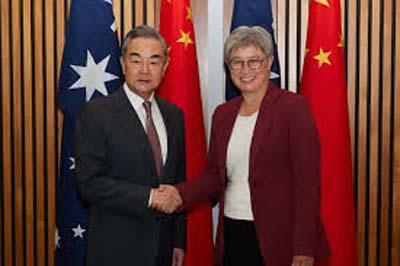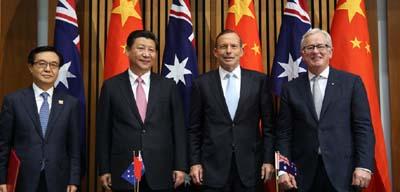
Australia should view China through its own lens
Victor Gao
It is very encouraging to see that Chinese Foreign Minister Wang Yi will visit Australia this week. With the Australian Prime Minister Anthony Albanese and Foreign Minister Penny Wong’s visit to China in November, this indicates that China-Australia relations are getting back on track fast.
This is good news for both China and Australia. For many decades, both countries treated each other fairly and equitably and got along very well. But when Australia’s former prime minister Scott Morrison was in office, his country seemed to lose its independence and seemed to be very much subjugated to the US.
Yet, whatever unpleasant things happened in China-Australia relations during the term of office of the former prime minister of Australia, now, it is encouraging to see the current government in Australia nurturing and promoting China-Australia friendship and cooperation. In that overall context, Wang’s visit to Australia is an important step in further enhancing relations between China and Australia and removing any obstacles which may still exist.

I hope the Australian people will realize that it is of crucial importance for these two countries to deal with each other as equals, and respect and get along with each other despite our social and political differences. I don’t think there is any reason for China and Australia to fight each other instead of embracing peace and getting along with each other.
Eventually, we have to accept the common fate for both China and Australia as being very much important parts of our part of the world and in doing so, contributing to global peace and stability. I don’t think there is anything like a destined-for-war scenario between China and Australia. War is not an option and should not be an option. The choice for Australia is obvious, rather than losing its sanity and judgment and be hijacked onto the bandwagon of hostility that the US is lining up against China, Australia should choose to cooperate with China.
In that sense, I think Australia really needs to strike a balance between its political and military alliance with the US on the one hand, and economic development, trade and people-to-people exchanges with China on the other.
In the Asia-Pacific region, we want to promote peace. We want to make sure that people in our countries in this part of the world will enjoy prosperity and development. However, sometimes, other countries from other parts of the world may look at this part of the world in a different way. They may want to use Australia as a major platform to launch their strategy of anti-China hostilities.
And if Australia gets along with that strategy, it may actually lose its ability to deal with countries like China and others on an equal basis. You really cannot expect to have robust trade between China and Australia if China believes that the Australian government sees China in a hostile way. That perceived hostility against China will definitely make a dent in China-Australia trade.
I hope Australia will look at China through the Australian lens, rather than through the lens of another country, especially if that other country has its own version of geopolitical considerations against China, which may not be in Australia’s own national interest. I truly believe the Australian government will eventually need to exercise its own judgment for the maximum benefits and interests of the Australian people rather than for any other country.
I think China and Australia have the inevitability of peace between our two countries. And I believe our future is intertwined with each other, because we are both very important countries in the Asia-Pacific region. If we can go in the direction of promoting peace, stability and development, both China and Australia will be winners.
I also hope the enhancement of China-Australia relations will set a good example for other countries in the West, as they see that Australia can make this major transformation from the former administration’s hostility against China to the current one’s eagerness to get along with China despite of the differences between the two countries.
The writer is a chair professor at Soochow University and Vice President of the Center for China and Globalization
